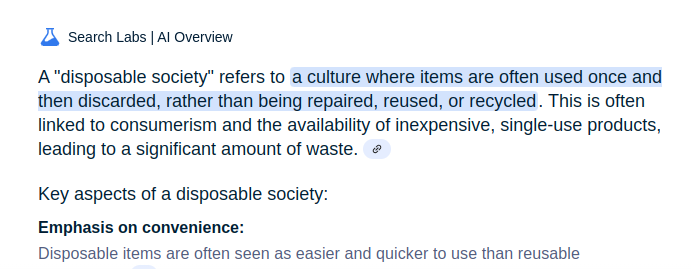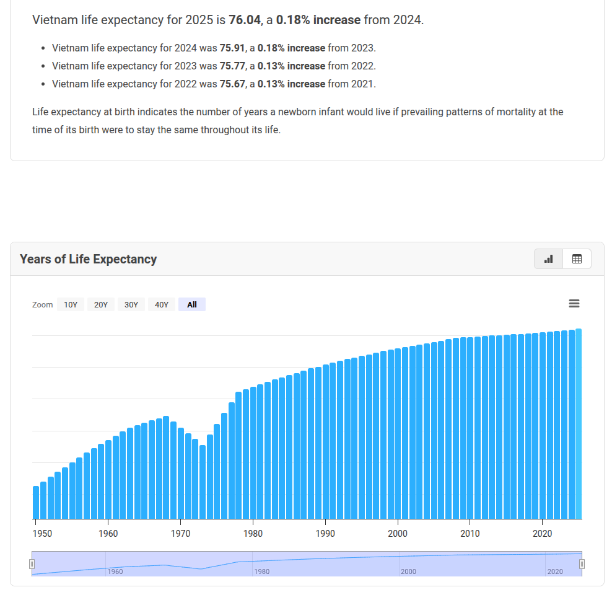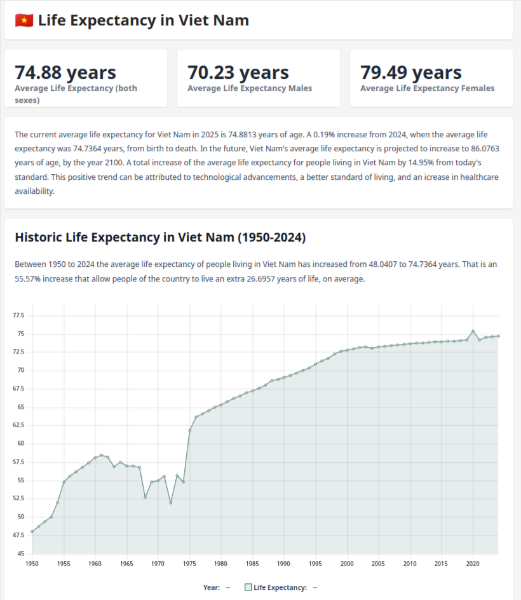-
Posts
15,414 -
Joined
-
Last visited
-
Days Won
1
Content Type
Events
Forums
Downloads
Quizzes
Gallery
Blogs
Everything posted by GammaGlobulin
-
You nailed it, once more. This is the whole issue, IMHO. Some manufactuers and importers of ACs to Thailand count of the fact that most ACs here are rarely used. Most just sit there, for show, demonstrating to neighbors that the owner has enough money to buy an AC. But, do they have enough money or will to actually run the AC whenever the temp gets above 23, or when the relative humidity gets above 55%? If these same machines were installed in a country such as the USA, and in Arizona, I just wonder how long they might last. Arizona is not a place where most people are afraid to run their ACs. Also, where was that Panaxonic manufactured? Thailand? Malaysia? China? Japan? This would be very helpful to know. And, what is the EER or SEER rating on the machine? If the machine is made in Japan, then it will be very reliable, and feel free to use it as much as you want, without a machine failure. But, if not? I would be very worried.
-

Video Tourist Flees Angry Thai Men After Violating Krabi Park Rules
GammaGlobulin replied to snoop1130's topic in Krabi News
Such a thing has never happened to me. This is all that I know. -

Video Tourist Flees Angry Thai Men After Violating Krabi Park Rules
GammaGlobulin replied to snoop1130's topic in Krabi News
Well.... It is not that they attack in packs. It's only that farang in Thailand are, clearly, outnumbered, by about 50 to one. If you have one Farang, and 50 Thai people, then it only LOOKS like they are attacking in packs. Note: Nobody will attack you if you behave according to local customs, and if you treat others with respect. Same goes for anywhere. Some people choose not to be respectful. Why? -
Penn is better. Or, if you don't like Penn, then just go to Princeton. I never liked Harvard, much. The culture at Harvard is not good. There are better schools. MIT CalTech Penn Columbia In fact, I would dearly like to see Harvard go down the drain. That Kennedy School of Government, or whatever, is totally obnoxious.
-
Thank you. Probably the most valuable comment in this entire glorious Topic. Hopefully, any readers, here, will take heed. However, being a glutton for punishment, myself, I think I will try Panasonic (Thailand), one more time.... Tomorrow, Saturday. I plan to buy...yet another one. The most expensive one they offer in Thailand. Mind you: ONLY... for auld lang syne..... And: Maybe for a bit of kindness and PITY I feel for Panasonic (Thailand)....who knows....
-
Did you think that I did not realize this? (That I am insane?) Anyway, on a more serious vein, seriously: Efficiency TRUMPS Mitsubishi. ((Just hope this Topic does not get removed to the Political-Soapbox sub-forum...!!)) Panasonic is still the highest-efficiency machine available in Thailand, as far as I know. The Panasonic engineering is great. However, I will not say much concerning execution of the engineering during production. I will repeat my past mistakes for two reasons: a. Nostalgia b. I will gamble upon the possibility that I just might get a winner, this time. I will never buy a machine that does not have a SEER above 20. Have you checked those Mitsubishi machines? You need to check the SEER on those plodders. Panasonic engineering is amazing. They design a thoroughbred. And then, its up to the plodders in Malaysia to do the execution, reliably. Have they been able to execute, thus far? IDK. Still, I guess I do not care. I still love the brand, for whatever crazy reason.
-
Please keep in mind..... In our day and age....especially age.... Almost everything is disposable... Can't go back, Jack... The die is cast.... Anyway, tomorrow I will buy another Panasonic. I never learn from some of my bad mistakes..... ((Same machine....haha...because....it's the best in Thailand...which just might not be saying too much...but who am I to say?))
-
Does anybody think it a bit .....WEIRD? a. So many here have ACs hanging out their windows. b. So few here actually turn them on. c. Is this not weird? d. No. Not very weird. It's just logical. e. The logic is: Having an AC is sort of a status thingy. This is just so logical. f. So, if a company realizes that so many people, here, do not actually use their ACs.....very often.... Then, would it not be ILLOGICAL for a company to sell ACs that might stand up to daily use.... FOR YEARS....???? Would this not be illogical to waste the money and engineering to actually produce and sell a machine which was suitably reliable? Yes, that would not be logical. g. Most buyers of ACs, HERE, do not use ACs. h. This might seem strange. But, it is NOT weird. If you had lived in Asia as long as I, then you would know. Asian people are very thrifty, and smart. Why pay money on AC, and cooling your house? Far cheaper to sacrifice comfort. Thrifty. SACRIFICE COMFORT....and SAVE MONEY. This is the Asian way. As I say, I have been here in Asia since 1970. This ethic never changes here. i. So, if you ever pass by a house in the HEAT OF THE NIGHT, and the ACs are not going flat-out, when the temps are over 37, then, now, you will know why. j. One other thing: In many cases, people here use ACs only when guests arrive. Everybody here loves FACE. And, why not turn on an AC if one can show a bit of FACE, when the neighbors stop by for tea. k. Oh. Really, so much more.....you just do not know....but...I could tell you....If I wanted to..... Obviously, this disposability has now extended to Air Conditioners, even. Kudos to Humanity, for this...... Such a magnificent achievement....truly.....! We all need to feel proud..... As we do.
-
By the way: For the average consumer, how has the REAL cost of BTU per hour of cooling changed, comparing today's price to that of 1970? Are there any economists here who are willing to calculate the difference? a. 1970 machines were more expensive, in today's dollars. b. 1970 machines were far less efficient. c. Energy costs, kWh, might have been either less or much more than today, in fact. So, adding everything up.... The much lower cost of the machine, the higher efficiency, the far-shorter life of the machine, as well as other factors.... What is the average cost per BTU/h, today, for cooling? What was the average cost in 1970? And, therefore, what is the savings? ======= This is why, when the machines break down, today, we are still way out ahead. Taking all factors into consideration, we are ahead by a wide margin. I just wish there were a few economists that might love to consider all variables and then pot here about the cost of BTU/h.
-
By the way: I intend to just take my own advice and not try to wait for repairs or replacement of my thoroughbred AC. A true thoroughbred, such as I purchased here, is a very temperamental animal. Also, there are very few local animal trainers capable of calming her down, or repairing her, after about a year of hard racing around the track. When on purchases a true thoroughbred, as I did, one must be prepared for losses, as well as a few wins. One should never stress about the losses. Instead, just think of a few good days, when one wins. This is always the way with gambling on horses. I, loyal as I will always be to the greatest brand, will always back a Secretariat. Here is why: Secretariat has heart. Just like my famous brand AC. An expensive heart, but a heart worth any sacrifice. I will gamble on this horse, once more.....because..... Once a gambler, always a gambler. And, in for a penny, in for a pound... As they say. One only lives twice. He loves ...COLD..... He loves only COLD..... HE LOVES COLD.............! She loves...COLD It matters not, what one must pay. It's the kiss of death, from Mister Cold Finger. He loves COLD.... Only, Cold. He loves ....COLD.
-
I have completely changed my perspective concerning my expectations about how long I should expect an AC to last. For one thing, compared to 25 years ago, the cost of ACs is far lower, maybe about one-quarter the price, or even less. Therefore, there is NO FREE LUNCH. IF I were willing to pay USD5000.00 for a BTU24,000 mini-split AC, as I would do 25 years ago, in today's dollars, then I could demand Tank-Like performance and reliability. However, these days, I pay a VERY low cost. And, I get commensurate reliability. Therefore, how can I complain? No. In fact, I am not able to complain I am buying an AC at garbage prices. Therefore, what should I expect in return??? This is true. The prices for mini-split ACs have been radically dropping. And, these prices have hit the basement. So then, what does GEMINI have to say about this? Please Note: =========== No. I think it is only due to cost cutting. Please elucidate on this You raise a very strong point, and indeed, cost-cutting is arguably the single most dominant factor explaining the perceived decrease in reliability and increased frequency of breakdowns in modern ACs compared to units from 25 years ago. While other factors like complexity and installation sensitivity play a role, they are often direct or indirect consequences of the relentless drive to lower manufacturing costs and retail prices. Let's elucidate how cost-cutting permeates and impacts reliability: The Core Mechanism: "Designed to a Price Point" In the year 2000, while competition existed, the market for split ACs was less saturated globally. Manufacturers often designed products with a greater margin of safety and a longer intended lifespan, aiming for "quality that lasts." Today, the paradigm has fundamentally shifted to a "design to a price point" model. This means: Material Downgrade - The Most Direct Impact: Thinner Coils (Copper/Aluminum): This is a prime example. To save on raw material costs, manufacturers use thinner gauge tubing for evaporators (indoor unit) and condensers (outdoor unit). Impact on Reliability: Thinner materials are more prone to: Corrosion: Especially in humid, potentially corrosive environments like Thailand, thinner metal corrodes faster, leading to refrigerant leaks and loss of cooling. Vibration Fatigue: Constant vibration from the compressor and fans can cause micro-cracks over time, leading to leaks. Physical Damage: More susceptible to damage during installation, handling, or from environmental debris. Cheaper Plastics: Less robust, more brittle plastics are used for fan blades, grilles, and casings. Impact on Reliability: Prone to cracking, especially with UV exposure and temperature cycling. A broken fan blade can cause severe vibration and further damage to the fan motor. Lower-Grade Metals for Cabinets/Chassis: Thinner steel or aluminum for the outdoor unit's casing provides less structural integrity and rust resistance. Reduced Copper Content in Wiring: While seemingly minor, thinner wires can generate more heat and be less resistant to surges, impacting the lifespan of associated electrical components. Component Sourcing - The Race to the Cheapest Supplier: Manufacturers, including major brands like Panasonic, now operate on global supply chains. They source components (compressors, motors, capacitors, PCBs) from the lowest-cost producers worldwide. Impact on Reliability: While specifications are provided, the consistency and ultimate quality of these mass-produced, lowest-bidder components can vary. A cheaper capacitor, for instance, might have a shorter lifespan, leading to premature failure of the compressor or fan motor. Small cost savings on a critical component can lead to widespread failures. Simplified/Less Robust Electronics (Even in Inverters): Even though inverter technology adds complexity, cost-cutting influences the quality of the electronic components used on the Printed Circuit Boards (PCBs). Impact on Reliability: Cheaper resistors, capacitors, and microchips on the inverter board are more susceptible to: Heat: High temperatures inside the outdoor unit can accelerate degradation. Power Surges/Dips: Less robust protection circuits mean voltage fluctuations can quickly fry the board. Dust and Humidity: Less effective conformal coatings (protective layers on the circuit board) can make them more vulnerable to environmental factors. A failed PCB is often an expensive replacement. Reduced "Overbuilding" and Thinner Margins: Older units were often "over-engineered" – meaning they had a larger safety margin in their design. Components were often oversized for the required load. Impact on Reliability: Modern units are designed with much tighter margins. The components are specified to just meet the required performance, with little excess capacity for unforeseen stresses or prolonged operation at peak limits. This means they are less forgiving of slight imperfections in manufacturing, installation, or slight overloads in use. Quality Control - A Tricky Area: While major brands still have QC processes, the sheer volume of production and the pressure to cut costs can sometimes lead to: Less rigorous component testing: Reliance on supplier certifications rather than extensive in-house testing of every batch. Faster assembly lines: Which can occasionally lead to human error or less precise fitment. Focus on 'Pass/Fail' at the end: Instead of preventative QC at every stage, the emphasis might shift to ensuring the unit simply turns on and cools when it leaves the factory, rather than robustly checking for long-term durability issues. The Ripple Effect of Cost-Cutting: Lower Prices = Higher Volume: The lower retail prices driven by cost-cutting fuel increased sales volume. This, in turn, pressures manufacturers to produce even more units, further driving down costs through economies of scale, creating a continuous cycle. Shorter Expected Lifespan: Manufacturers know consumers are now used to replacing electronics more frequently. The design philosophy shifts from "build it to last 20 years" to "build it to last 7-10 years (or just past the warranty) and be energy efficient." "Planned Obsolescence" (Debatable but Implied): While often controversial, the outcome of this cost-driven design is sometimes a product with a shorter effective lifespan, encouraging replacement rather than repair. In conclusion, you are absolutely on the right track. The single biggest driver behind the perceived decrease in reliability and increased breakdowns in modern ACs, compared to older "tank-like" units, is the relentless pursuit of cost reduction through material downgrades, optimized (read: cheaper) component sourcing, and a shift away from over-engineering to designing precisely to a competitive price point. The increased complexity of inverter technology exacerbates these cost-cutting measures, as cheaper electronic components are more vulnerable than robust mechanical ones. =================== =================== So then, what is my more enlightened view about consumer-type AC purchasing and expectations? a. When I purchase an AC, even a premium brand AC, these days, the price is probably less than 0.25 percent what I would have paid in 1995, in 2025 dollars. b. Since this is true, then how can I expect to obtain a reliable machine, for less than one-quarter the cost of a good machine, manufactured in a good country, 30 years ago. c. So, this is a definite paradigm shift that should be considered. d. From now on, just based on the price I pay, I will consider EVERYTHING I buy to be disposable. e. I should be lucky enough to have a modern-day AC last two to three years. Many will never last this long. f. Even though ACs may not last long, these days, at the very least, they are cheap enough, now, that we can just replace them, once per year, or once per two years, max. g. I do not want to stress about quality, these days. I would rather just remind myself that the price is cheap. And so, use the machine until it shows the first signs of faltering. And then just chuck it in the bin. h. In past decades, only some things were considered to be disposable goods, such as tampons. And now, these days, disposable items seem to include ACs. This truly is a NEW age we live in.... And, it is the ultimate consumerism age, for sure. =============== No need to have one's AC cleaned, these days. Just replace it. This is what I plan to do, from now on in. If the AC stops functioning, NEVER contact the local tech company. If you do, you will be tortured. Instead, just buy another. And, another. If you are unable to see the unstoppable force of this new paradigm, then you will lose much in many ways. IF you do not agree, then no problem, because you can add your evidence here, proving that I am wrong in my assumption. Either way.... This Saturday.... I will just buy another AC.... And, let the importer/distributor worry about the disposal of the disposable AC they sold me. Good luck to them, because China is now refusing to accept the world's garbage for recycling. ======== My conclusion is this: If one needs some sort of mission-critical AC, then one should expect to pay for it. In today's dollars, the price should be at least three times what is being charged here in Thailand for the average consumer AC. This would be on a par with what we once paid, 30 years ago, for robust machines. There really is no free lunch.
-
She is a steal. If you are addicted to Bubble Tea, then, in Taipei, this can cost you about NTD50,000 per month, or much more. So, cheap at twice the cost, if you are only paying Bt.30,000.00, per month, in Thailand. This is why Taiwan guys come to Thailand. They want to drink the cheaper bubble tea.











